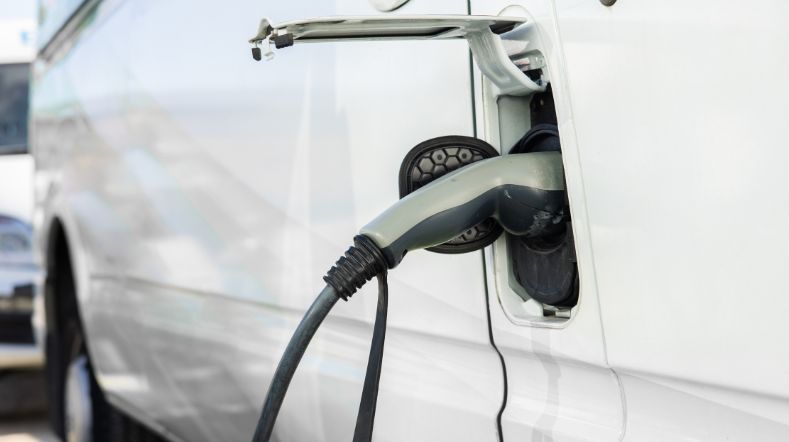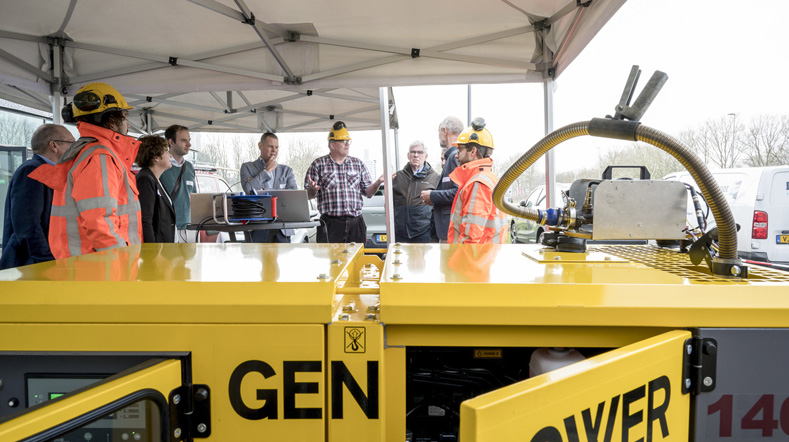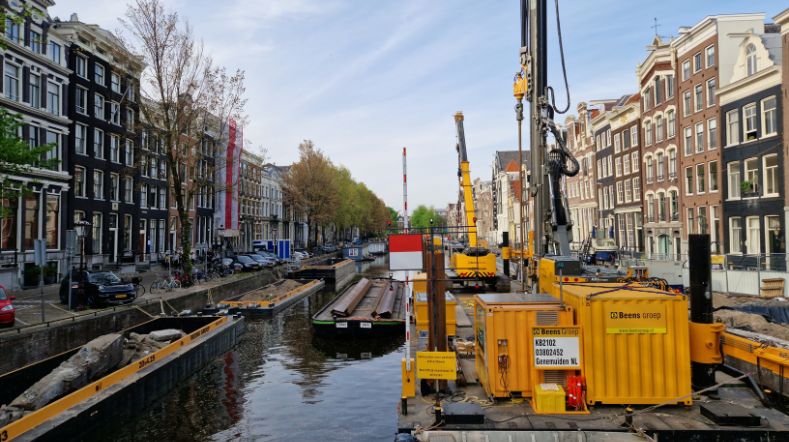
System-level approach to zero-emission logistics
To achieve the 2050 climate goals, the transport and logistics sector is working on reducing CO2 emissions with innovations such as electric trucks and biofuels. TNO’s LESS proposition offers a systemic approach to emission-free logistics, aimed at minimising negative impacts on people and the environment. Efficient logistics is key.
Complex logistics challenges
The logistics sector faces multiple complex challenges that require a systems approach to resolve. Decarbonisation is an obvious priority. Logistics must reduce its CO2 emissions by over 90% by 2050, surpassing the 60% target originally set by the European Commission. Freight transport must reach zero CO2 emissions in less than 30 years, with further reductions required by 2030, as outlined in the ‘Fit for 55’ programme.
Decarbonisation, however, is not the only issue. Air pollution, particularly particulate emissions, poses a significant health risk in urban areas, with the Clean Air Agreement (Schone Lucht Akkoord) aiming for a 50% improvement in health by 2030. Furthermore, nitrogen emissions threaten biodiversity, creating challenges for construction logistics, as the Netherlands embarks on its largest housing and infrastructure renewal project in decades.
Urban living is shifting towards prioritising slow mobility like bikes and pedestrians, but logistics activities—mainly vans and trucks—share infrastructure with vulnerable road users. Congestion, traffic safety, speed limits, and regulations complicate city logistics, with construction operations contributing around 30%. At the same time, shipping and construction companies are grappling with rising fuel and labour costs, driving the need for greater efficiency and cost reductions.
Our approach
To overcome these challenges and work towards measures to support efficient and sustainable logistics system, TNO is developing methods and tools to gain insights into the emissions and other adverse effects of logistics at a systems level. Simultaneously, we are developing innovative logistics concepts to mitigate these effects and promote the sustainability and efficiency of the logistics system, whether at the city, national, international or provincial level. Our key application areas are:
- City logistics
- Construction logistics
- Logistic corridors
Impact assessments
Our methods and models for impact assessment form the foundation of our activities. By analysing specific logistical challenges, such as the impact of city logistics on different types of neighbourhoods, including a car-free area, we can provide valuable insights to enable effective measures or logistic concepts.
The results of these assessments—whether at a local, regional, national, or even international level—are then further examined by focusing on the specific underlying causes. Examples of these models include:
A model to make a decomposition of the logistics system and its subsystems (i.e. hinterland, cities, overseas, construction logistics) to provide insights into the external effects.
TNO has developed a calculation tool that provides insights into CO2, NOx and particulate matter emissions from road transport and construction machinery during construction projects.
This comprehensive planning platform offers a construction logistics module that provides insights in the effect of measures and policies on logistics flows and emissions.
Designing logistics concepts
At TNO, we aim to provide actionable insights for the logistics sector and policymakers by designing and developing logistics concepts that are likely to contribute to effective solutions. Examples include the deployment of electric vehicles, enhanced collaboration between stakeholders, and decoupling concepts to reduce the number of logistics vehicles in urban areas.
We partly design innovative concepts together with stakeholders. Once these concepts are implemented, we measure their impact on factors such as emission reduction and cost efficiency. How do these concepts contribute to zero emissions, zero losses, and zero casualties, and can they be effectively implemented in practice? All in all, this approach provides insights into whether a combination of measures is sufficient to meet policy targets.
By initiating living labs in broad consortia we test logistics concepts in practice and discover their effects on sustainability and efficiency. Recent examples include:
CILOLAB is a living lab for sustainable urban logistics, where logistics providers, hub operators, municipalities, and knowledge institutions collaborate to develop and implement zero-emission logistics solutions for stakeholders in various cities;
In this project, TNO is collaborating with industry partners, local governments, and trade associations to accelerate the development of zero-emission construction sites and scale up real-world solutions.
This European Green Deal project to develop and deploy electrical and autonomous truck technology for port applications.
Creating the right preconditions
To turn a good idea into a success, you need the right conditions for scaling up. By identifying the right partners, establishing collaborations within ecosystems, and providing sound policy advice, TNO helps stimulate the successful implementation of logistics concepts. For example, if we aim to electrify distribution and deploy an electric fleet, how do we create the necessary preconditions for success, such as establishing a reliable charging infrastructure?
Interdisciplinary knowhow
A system transition in logistics requires a broad overview of the playing field and interdisciplinary expertise. For example, in zero-emission construction sites, TNO combines its knowledge of sustainable construction concepts and industrial production technologies with expertise from its Vehicle Emissions Lab, which measures emissions of vehicles and non-road mobile machinery in realistic conditions.
This integrated approach allows TNO to predict the impact of logistics concepts, such as electric equipment and construction hubs, helping to develop roadmaps for industry and policymakers on the future of zero-emission construction.
TNO is aligned with international research groups and projects such as Codezero and the European Technology Platform ALICE aimed at advancing innovation in logistics, transport and e-ecommerce.
Collaborate with TNO?
TNO is looking for partners to collaborate in research projects and living labs that help accelerate the transition towards sustainable and efficient logistics. Contact one of our experts for the possibilities.
Get inspired
Optimal charging planning for logistics service providers considering grid congestion


Cleaner construction thanks to smart construction logistics and accurate emission measurements







